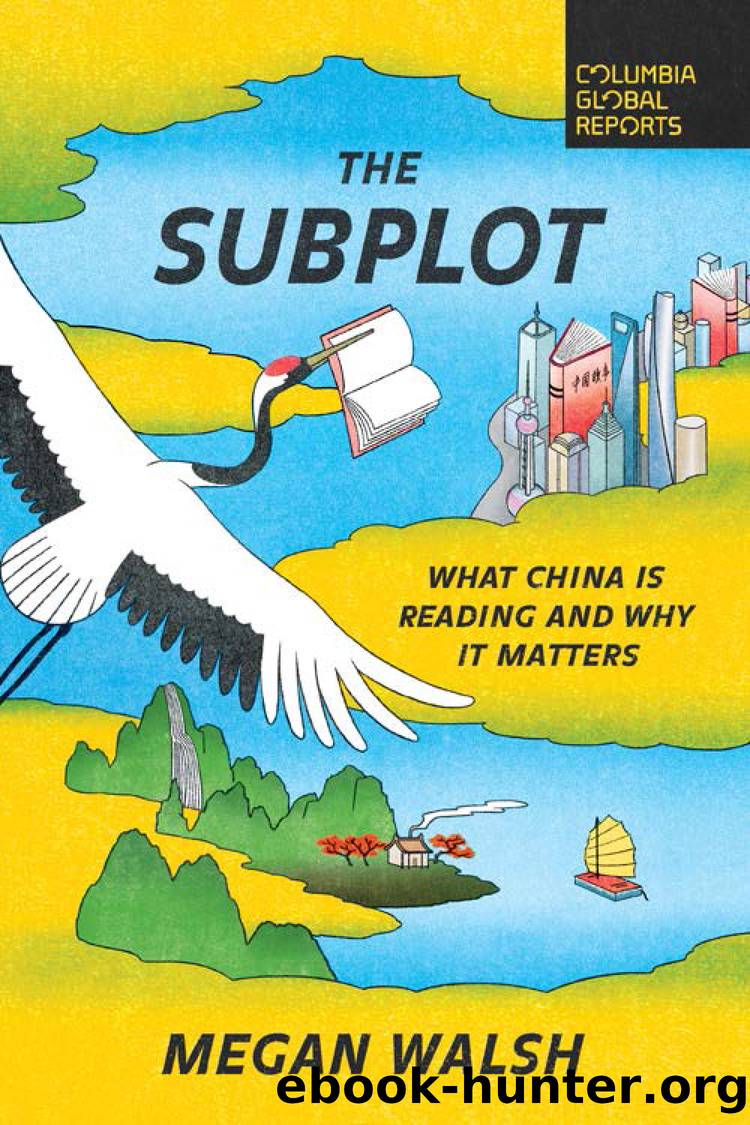The Subplot by Megan Walsh

Author:Megan Walsh
Language: eng
Format: epub
Publisher: Columbia Global Reports
Wolf Totemâs legacy, including its blockbuster movie adaptation, has inadvertently been seen as a call to arms for Han dominance. âWolf cultureâ is now ubiquitous, with a slew of lupine-themed self-help books and business manuals piggybacking on the success of Wolf Totem, not to mention the recent nationalist action movie franchise Wolf Warrior. The phrase âwolf warrior diplomacyâ is bandied around to describe Beijingâs more combative world presence; tech giant Huaweiâs success has been credited to its âwolf culture,â which has, in turn, been described as âthe desire to conquer, the worship of power and, in China, [the belief] that âmoney is everything.ââ Jiangâs reductive âwolfâ and âsheepâ metaphors have contributed to what many see as a predatory and merciless presence in ethnic borderlands.
Inner Mongolian author Guo Xuebo deeply resents the false attribution of âwolf cultureâ to Mongolian people. He describes wolves as âgreedy, selfish, cold, and cruel,â and says that âadvocating the spirit of wolves is [a kind of] fascist thought that goes against humanity.â It also goes against ethnic diversity, and reaffirms the need âto safeguard the history of our ancestors and our ethnic culture.â According to Wang Lixiong, an ethnic Han democracy activist and author of the 1991 science fiction novel China Tidal Wave, the surge of Han culture in Chinaâs semiautonomous regions has already overwhelmed ethnic minority history and culture. He believes that Han Chinese immigration is the governmentâs preferred method of control in âseparatistâ ethnic regions. âInner Mongolia is considered the most successful,â he says, âIt has a population of about 25 million and 20 million are now Han ⦠so the government feels that basically there is no minority problem in Inner Mongolia.â
The situation could not be more precarious for Chinaâs 12 million ethnic Uyghurs in the northwestern autonomous region of Xinjiang, which in Mandarin means ânew frontier.â Their language is Turkic in origin, and very different from Chinese. The majority are Muslim, and a tiny group have committed deadly terrorist attacks. And yet the very act of writing in their native tongue can lead to their âdisappearanceâ into one of Xinjiangâs well-documented detention or, as the CCP calls them, âre-educationâ camps. The long list of imprisoned publishers, scholars, poets, and writers includes, Ablet Abdurishit Berqi (pen name Tarim), Adil Tuniyaz, and Aburehim Heyit, while Haji Mirzahid Kerimi and Nurmuhemmet Tohti have died in prison. This is far from a roundup of dangerous terrorists and criminals, but what has been widely referred to as âcultural genocide,â with an estimated 1.8 million detainees.
The consequences of speaking plainly, let alone in oneâs mother tongue, are increasingly an existential threat. Tarim, who is currently detained, usually writes about love in Uyghur, yet in Chinese his words are focused and political:
Friends say
the beauty of Chinese
is its subtlety
I ask
Is that because there is no freedom of speech?
Friends say
Chinese poetry needs metaphor
I ask
Is that the same as a bat liking the dark?
Friends say
You are too blunt
I ask
is daring to speak the truth
not poetry?
Download
This site does not store any files on its server. We only index and link to content provided by other sites. Please contact the content providers to delete copyright contents if any and email us, we'll remove relevant links or contents immediately.
Kathy Andrews Collection by Kathy Andrews(11832)
The remains of the day by Kazuo Ishiguro(8999)
Spare by Prince Harry The Duke of Sussex(5197)
Paper Towns by Green John(5191)
The Body: A Guide for Occupants by Bill Bryson(5097)
Industrial Automation from Scratch: A hands-on guide to using sensors, actuators, PLCs, HMIs, and SCADA to automate industrial processes by Olushola Akande(5061)
Machine Learning at Scale with H2O by Gregory Keys | David Whiting(4313)
Be in a Treehouse by Pete Nelson(4051)
Never by Ken Follett(3957)
Harry Potter and the Goblet Of Fire by J.K. Rowling(3857)
Goodbye Paradise(3810)
The Remains of the Day by Kazuo Ishiguro(3413)
Into Thin Air by Jon Krakauer(3399)
Fairy Tale by Stephen King(3399)
The Cellar by Natasha Preston(3344)
The Genius of Japanese Carpentry by Azby Brown(3309)
120 Days of Sodom by Marquis de Sade(3275)
Reminders of Him: A Novel by Colleen Hoover(3121)
Drawing Shortcuts: Developing Quick Drawing Skills Using Today's Technology by Leggitt Jim(3081)
